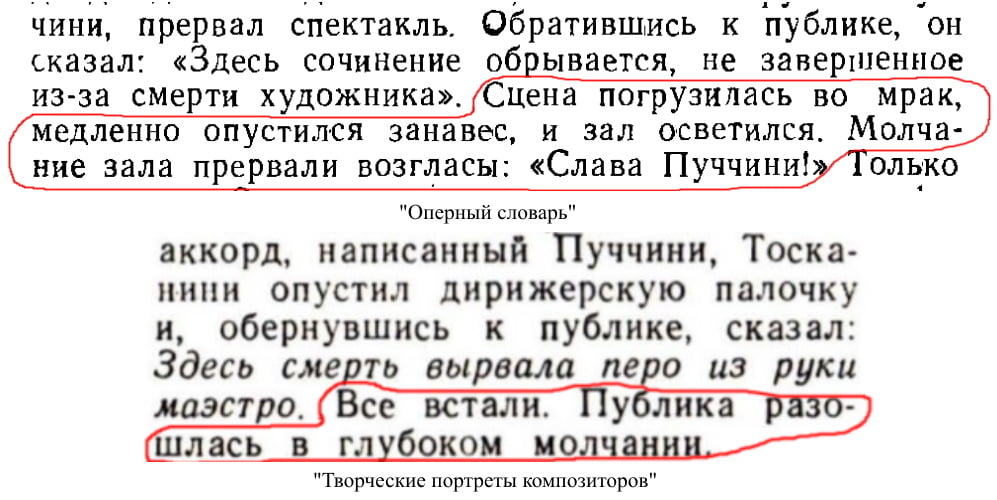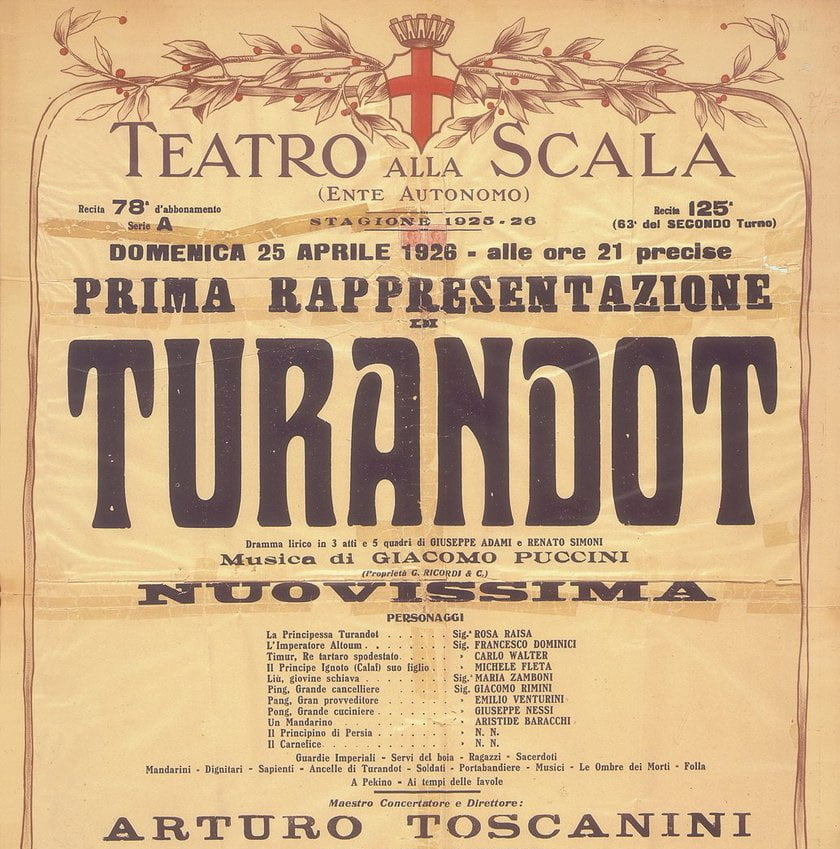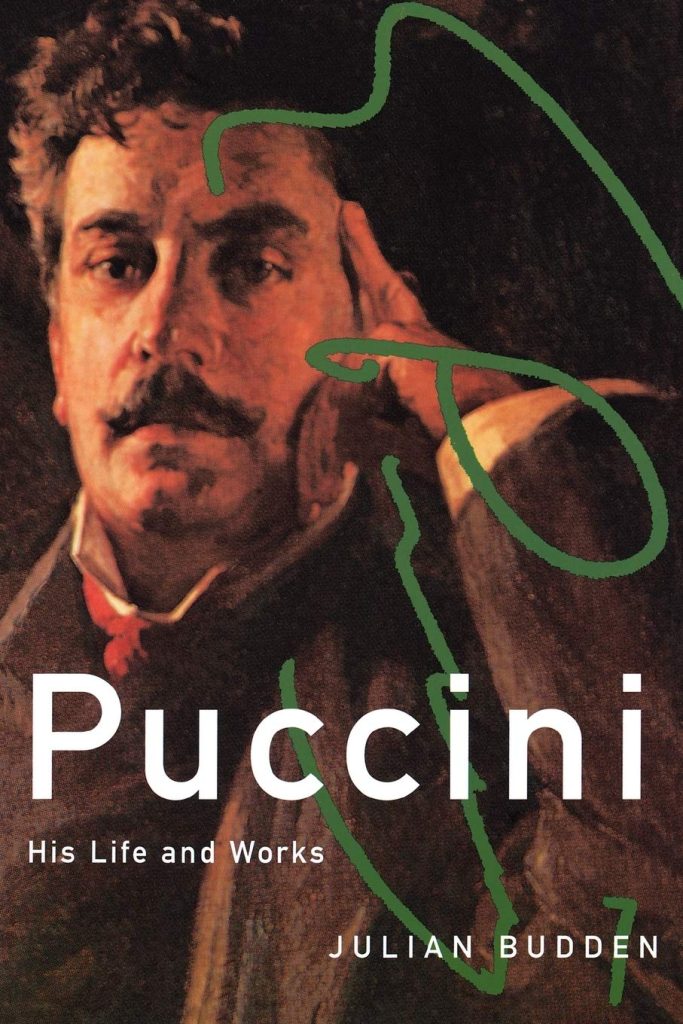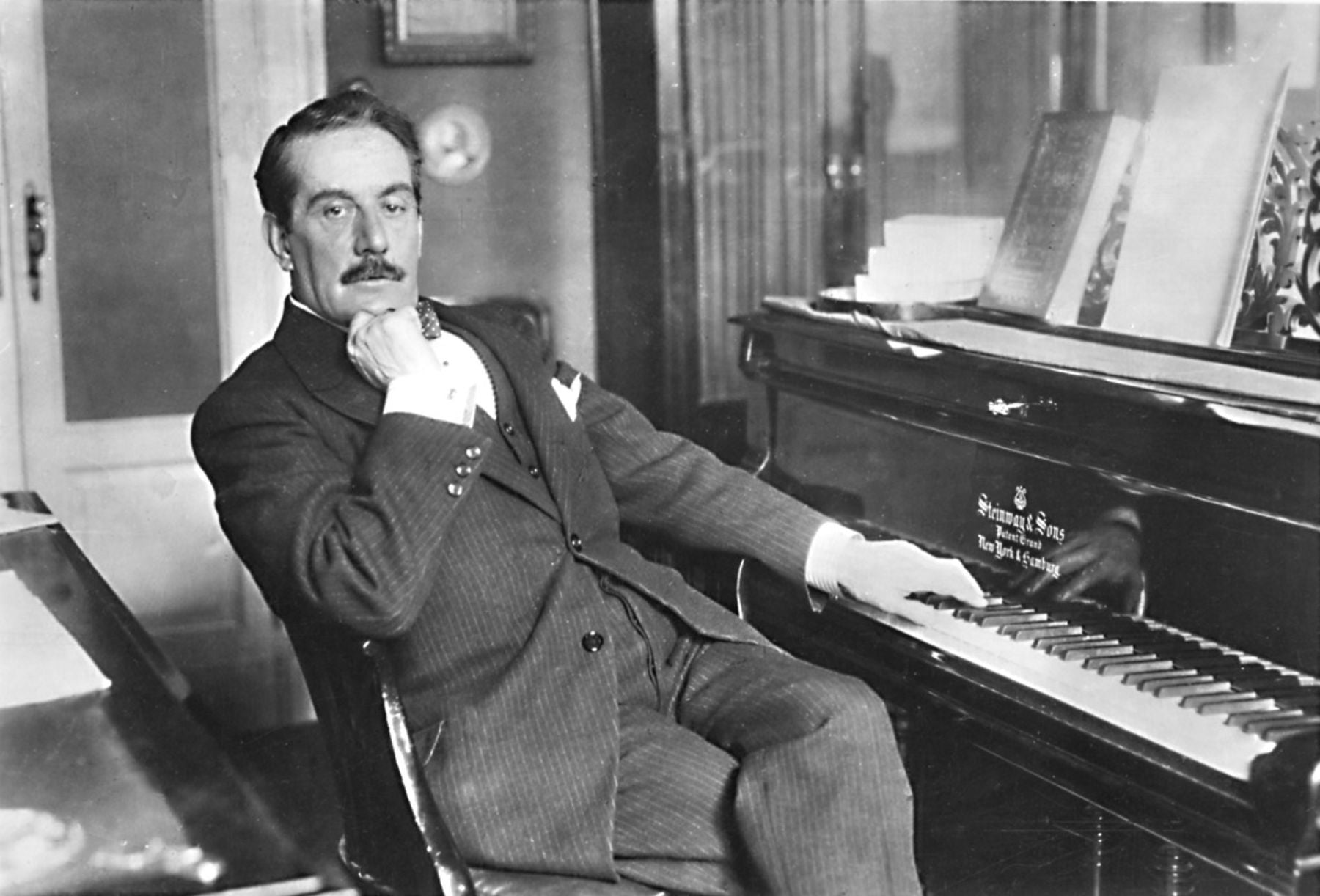As you know, Giacomo Puccini did not have time to finish one of his best operas, Turandot. According to legend, at the premiere, conductor Arturo Toscanini stopped the production, announcing: “Here death interrupted the work on the opera.” After Toscanini’s words, the audience silently left the theater. Let's check if this is true.
In many Russian-language printed sources (such as the encyclopedia “Creative Portraits of Composers” 1990) said: “The audience dispersed in deep silence.” A similar phrase is given in an article popular on the Internet by T. Keldysh. A number of publications went further - there it says: “After Toscanini’s words, the singers, orchestra and audience left the theater in deep silence.” And here is the “Opera Dictionary” of 1965 asserts, that “the silence was broken by exclamations: “Glory to Puccini!”

Before we understand where the truth is, let's look at the background.
Puccini died in Brussels on November 29, 1924, before completing the final act of his last creation. Sources testify, that the seriously ill composer entrusted his colleague Riccardo Zandonai to put the finishing touches. However, Puccini's son, Tonio, unexpectedly vetoed his father's decision. According to one of versions, he believed that Zandonai was too famous and opera would be associated with him alone. One way or another, between the other candidates - Tommasini, Mascagni and Alfano - the choice fell on the latter.
Franco Alfano worked as hard as he could, the premiere date was approaching. True, another circumstance intervened. Shortly before his death, Puccini told his friend, the famous conductor Arturo Toscanini: “If I don’t have time to finish the opera, then at this point in the production someone will come to the footlights and say: “The author composed the music up to this moment. He died here.” Toscanini took the remark as his last will, coordinated everything with the Puccini family, and they decided to give the premiere without the Alpha ending. Just one time.
“Here death interrupted the work on the opera, which the maestro did not have time to complete” - these words, uttered by Arturo Toscanini on April 25, 1926 on the stage of the La Scala theater immediately after the music suddenly stopped, became famous. A number of sources give another version of the phrase: “Here the maestro laid down his pen.” Some art critics even thinkthat this day completed the history of classical music.

But another question remains open for us: what happened after Toscanini’s remark? For a final answer, we turned to foreign sources. That's what writes Julian Budden in his book “Puccini. His life and works":
In the silence that accompanied the slow descent of the curtain, a voice was heard: “Hail Puccini!” Crying was heard from everywhere. As [Franz] Lehar recalled, many tears were shed. There is no reason to doubt his words.

The same version is given by biographers Kenneth Christensen (“The Mystic of Puccini. The Genius Beyond Music”), Gaia Servadio (“Luchino Visconti. Biography”), Conrad Dryden (“Franco Alfano. Beyond Turandot”), Gustavo Marchesi (“Puccini. Life and Photographs”) and dozens of other writers. Piero Melograni mentions "a flurry of applause" and Howard Greenfield mentions "one of the most moving ovations in the history of La Scala."
Thus, we can say with a considerable degree of confidence that the silent departure of the audience from the premiere of “Turandot” is simply a mistake that appeared in one of the articles or books and was replicated in Russian literature.
Fake
Read on topic:
- https://compozitor.spb.ru/catalog/muzykalnyy-teatr/puchchini-dzh-turandot-liricheskaya-drama-v-3-kh-deystviyakh-5-ti-kartinakh-klavir-russ-it-yaz-/
- Puccini: His Life and Works (Master Musicians Series)
- https://www.belcanto.ru/turandot.html
If you find a spelling or grammatical error, please let us know by highlighting the error text and clicking Ctrl+Enter.







